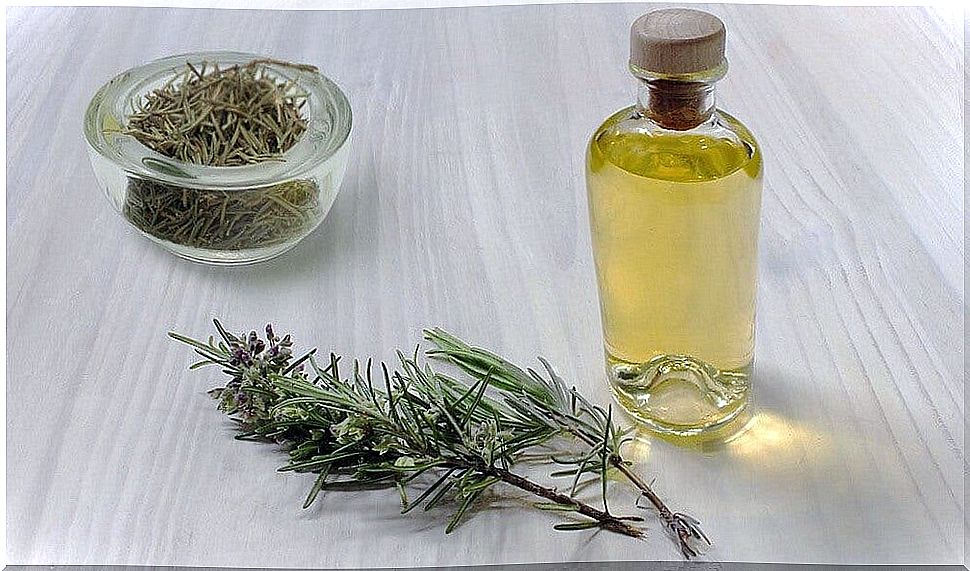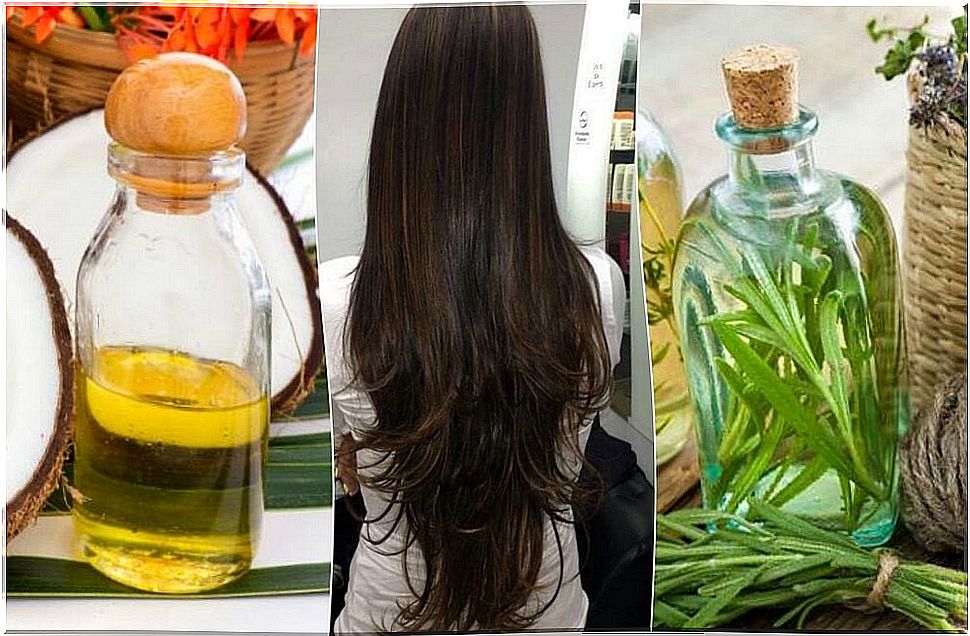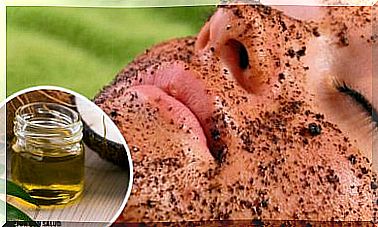Uses Of Rosemary Oil That You May Not Have Known
Although rosemary oil is attributed different aesthetic and health properties, several of them have no scientific support. Find out everything here.

Rosemary has been attributed for hundreds of years a series of health properties: some of them have scientific support, others do not. In this article, we tell you about the uses of rosemary oil and whether or not there are studies that support its supposed health benefits.
Rosemary is commonly used as an infusion, however, in recent years it has been suggested that its essential oil would have aesthetic and health properties. Let’s find out what is true in these statements.
Note : It is recommended to consult a doctor in the case of hypertension or epilepsy. Rowing oil would be contraindicated in pregnant women.
Facts about rosemary oil

This plant has been used for thousands of years for therapeutic purposes. In fact, there are vestiges that affirm that at the time of the Egyptians it was used for aesthetic purposes and to alleviate ailments.
It is believed that in 500 BC it was part of the diet of the Greeks and Romans, as well as being a prominent medicinal plant.
Currently most rosemary production comes from Spain, France and Morocco. Its extraction is carried out by means of the distillation of the oils of the plant. It is intense and very concentrated. For this reason, it is almost never used neat, but is diluted into other components.
The best uses of rosemary oil
It is worth noting that home remedies do not exempt you from consulting a doctor or carrying out the treatment prescribed by the specialist. In many cases, its properties are not scientifically proven and could even cause allergies.
One of the main uses of rosemary oil is as an anti-aging substance. Although a 2017 study analyzed the possible impact of using rosemary oil in combination with lipid nanoparticles to improve the appearance of the skin, the final data was not conclusive and new research is needed in this regard.
Despite the lack of evidence for its topical use, it is often recommended to mix rosemary oil with peppermint and then apply it to the skin. These two ingredients are supposed to hydrate the complexion, giving it a glowing appearance.
Remarkable properties

1. Anti-inflammatory effect
Rosemary oil would have soothing and anti-inflammatory properties. A pilot study compared the reactions of people with chronic shoulder pain to aromatherapy acupressure (using rosemary and lavender oil) with those of people undergoing acupressure without aromatherapy.
The patients in the first group had a reduction in pain, and it can be inferred that the fragrances used in aromatherapy had a role in this result. Later, research in animals suggested that rosemary oil would have anti-inflammatory properties. However, more studies in people are necessary to obtain reliable data.
In a common way, rosemary oil is widely used by sports medicine, when athletes are massaged in areas of muscle overload or in injuries.
2. Improved skin
It is supposed to help improve the general condition of the skin by applying in a circular motion. Natural medicine often uses this oil to relieve inflammation caused by arthritis, rheumatism or hemorrhoids. In any case, remember to consult a doctor if you suffer from any of these diseases.
3. Antibacterial effect
Different studies have pointed out the antibacterial property of rosemary, for this reason its oil is often used on superficial wounds, domestic cuts or scrapes.
It is considered that it could be an interesting healing, however there are no human studies that support this belief. A 2010 investigation showed that wounds of diabetic mice on which rosemary oil was applied, closed faster and without leaving marks.
Additional uses of rosemary oil
Rosemary oil has long been used to improve the general condition of hair, regardless of whether it is oily or dry. It could be used as a shampoo to clean from the scalp to the tip of the hair. Some research indicates that it may be good for treating baldness or hair loss, as well as seborrheic dermatitis.
Due to the antimicrobial properties mentioned above, it is often noted that it would be possible to use rosemary essential oil as a toothpaste. Supposedly, it would help eliminate bad breath caused by excess bacteria in the mouth and also leave a fresh and clean scent.
The Egyptian Journal of Basic and Applied Sciences published an article in 2017 pointing out the benefits of rosemary oil in improving visual memory, with respect to a control group that was not subjected to the inhalation of said oil.
On the other hand, it is believed that it would improve mental clarity, help combat stress and depression, and reduce tension and anxiety. It would improve mood and at the same time increase people’s energy levels.

Uses not proven
Rosemary oil is usually used on a regular basis to try to alleviate the ailments that we will comment on below, although there is no scientific data that proves its effectiveness and safety:
- Thanks to the stimulating and tonic effects attributed to it, it is believed that it would help improve blood circulation and at the same time, strengthen the immune system.
- It is used as a supplement to relieve both diarrhea and constipation.
- Women with menstrual pain apply a few drops of the oil on the area and massage it, to relieve discomfort.
- It may help reduce headache symptoms.
As you can see, rosemary oil is famous throughout the world for its supposed beneficial health properties. However, many of them have yet to be proven by science. If you suffer from any of the ailments mentioned, consult your doctor to receive the appropriate treatment.








